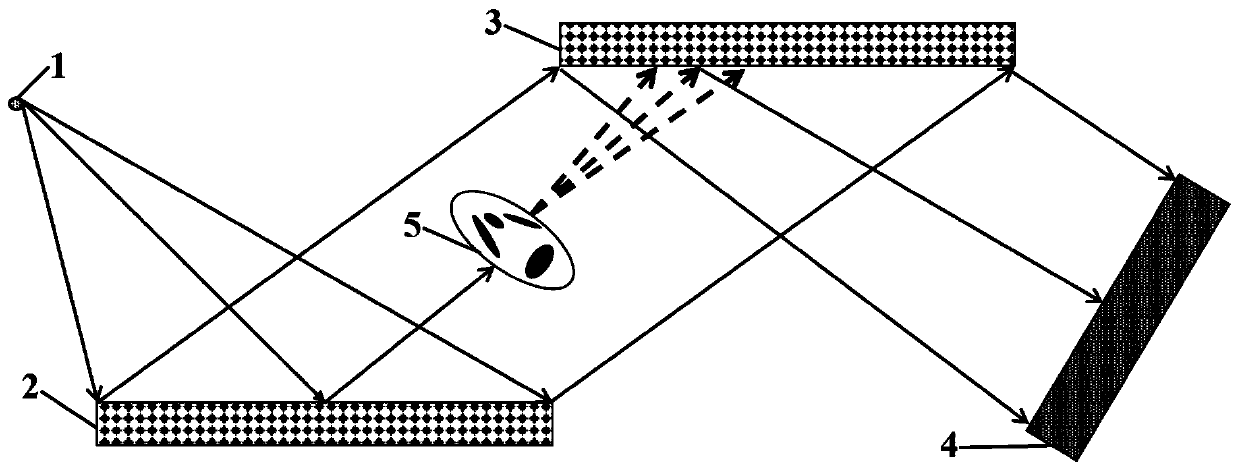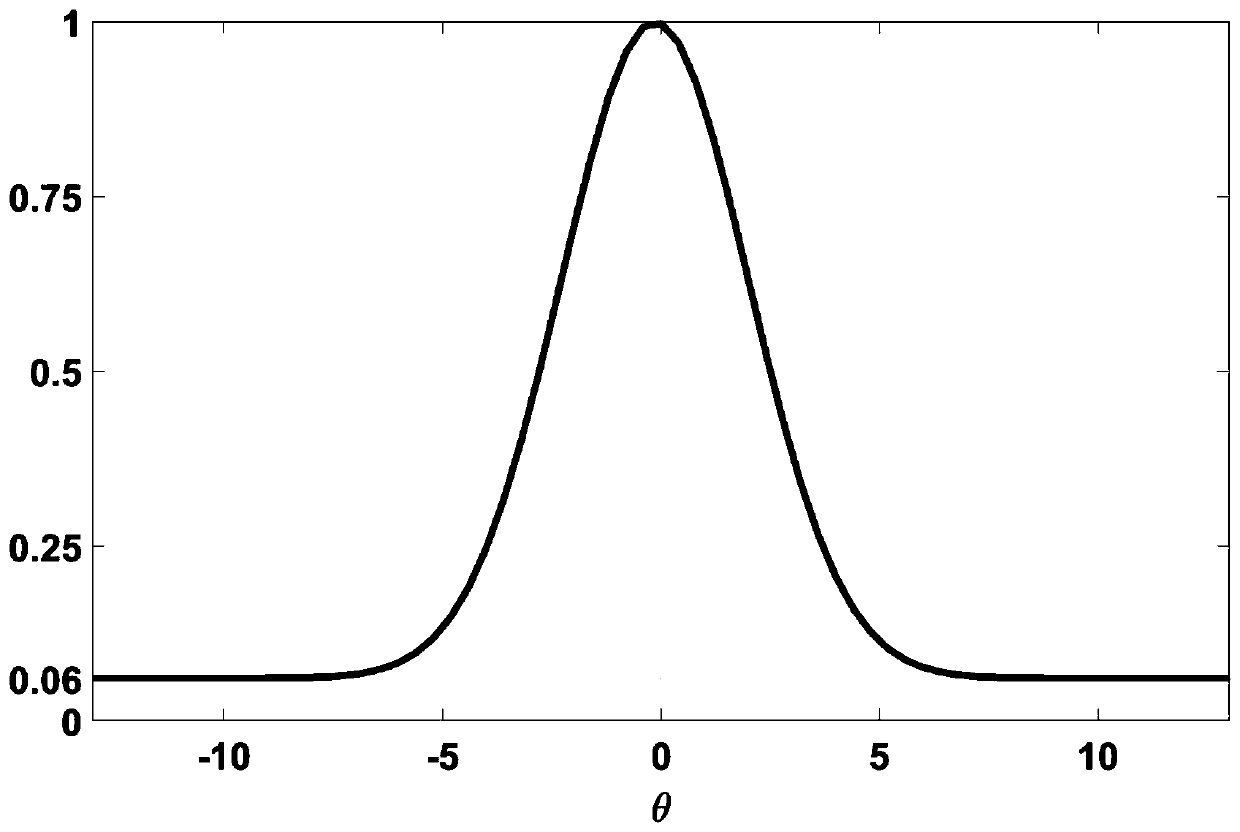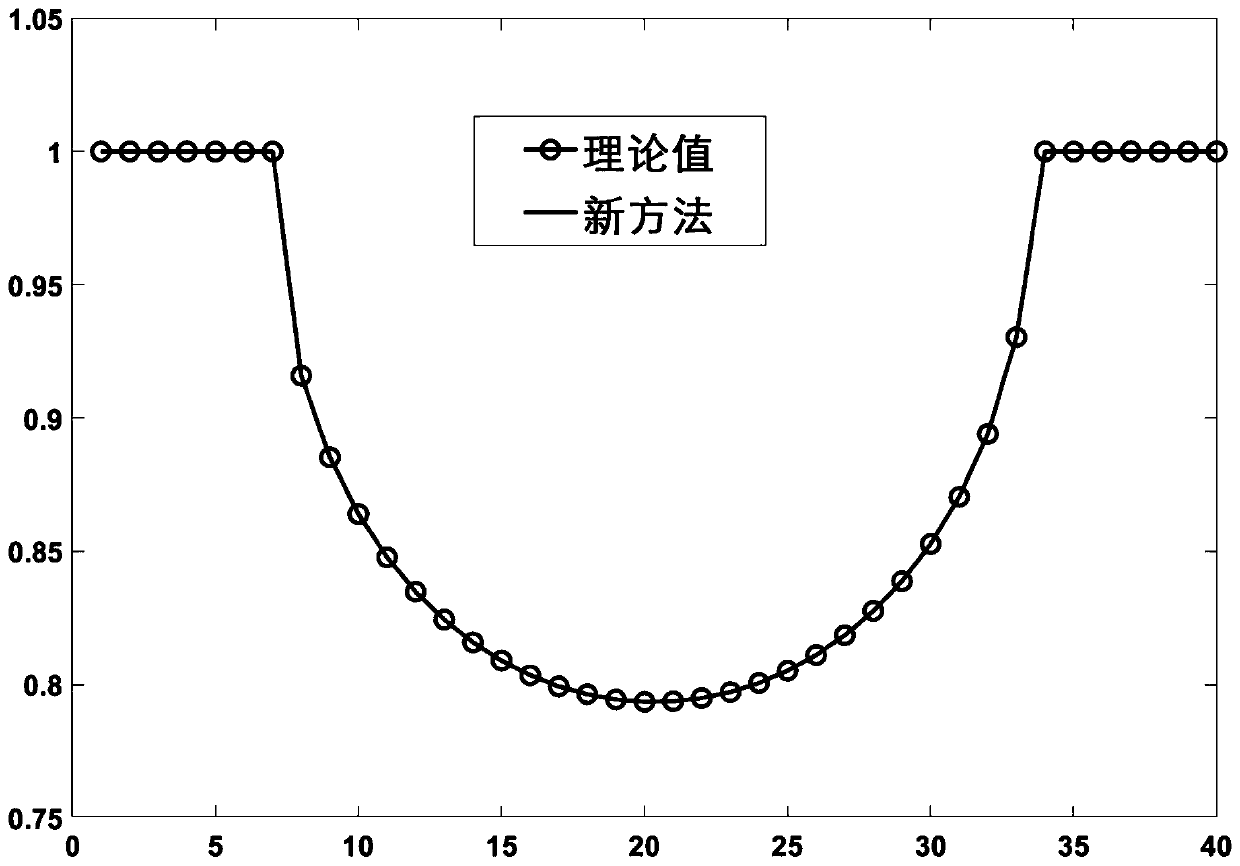X-ray diffraction enhanced imaging method based on iterative algorithm
An enhanced imaging and iterative algorithm technology, applied in the field of X-ray imaging, can solve the problems of long data acquisition time, inaccurate extraction of refraction signal and scattering signal, hindering the popularization and application of X-ray diffraction enhanced imaging, and achieve the effect of accurate extraction
- Summary
- Abstract
- Description
- Claims
- Application Information
AI Technical Summary
Problems solved by technology
Method used
Image
Examples
Embodiment Construction
[0065] In this example, see figure 1 , setting an X-ray diffraction enhanced imaging system composed of X-ray source 1, monochromatic crystal 2, analysis crystal 3 and detector 4; as figure 1 As shown, the X-ray propagation direction is the Z axis; the X-ray source 1, the monochromatic crystal 2, the imaged object 5, the analysis crystal 3 and the detector 4 are arranged in sequence along the Z axis; then the X-ray based on the iterative algorithm The ray diffraction enhanced imaging method is carried out as follows:
[0066] Step 1. Set the relative position of each device, satisfying: 01 3 4 , where d 1 is the relative distance between the monochromatic crystal 2 and the X-ray source 1 along the Z axis, d 3 To analyze the relative distance between the crystal 3 and the X-ray source 1 along the Z axis; d 4 is the relative distance between the detector 4 and the X-ray source 1 along the Z-axis;
[0067] Step 2. Obtain background projection data:
[0068] Step 2.1, taking ...
PUM
 Login to View More
Login to View More Abstract
Description
Claims
Application Information
 Login to View More
Login to View More - R&D
- Intellectual Property
- Life Sciences
- Materials
- Tech Scout
- Unparalleled Data Quality
- Higher Quality Content
- 60% Fewer Hallucinations
Browse by: Latest US Patents, China's latest patents, Technical Efficacy Thesaurus, Application Domain, Technology Topic, Popular Technical Reports.
© 2025 PatSnap. All rights reserved.Legal|Privacy policy|Modern Slavery Act Transparency Statement|Sitemap|About US| Contact US: help@patsnap.com



